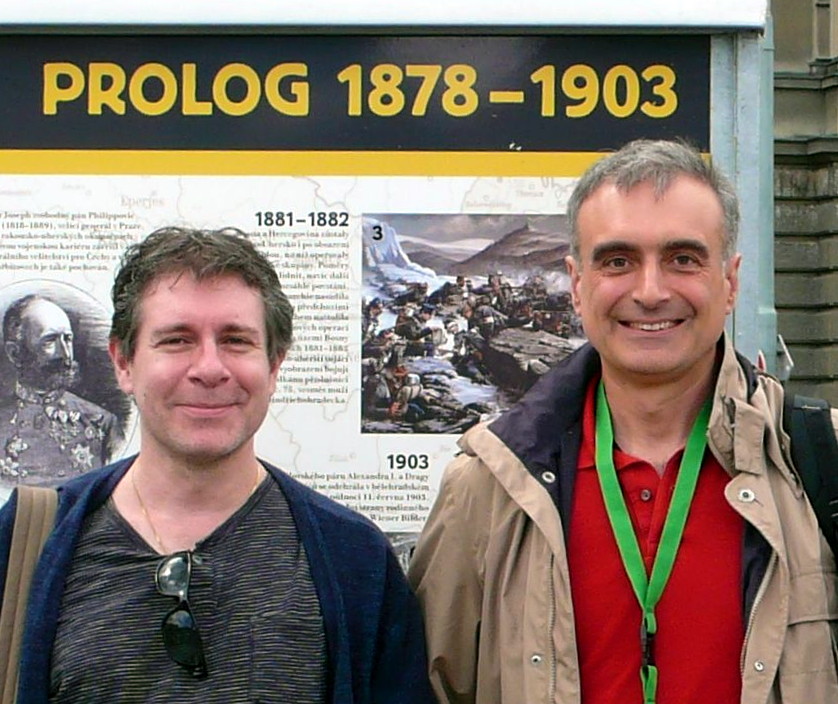Dear LPers,
We start with a mournful question: Did Prolog pass away? Some posters outside ECAI 2014 in Prague seem to suggest this (they also suggest that Prolog’s history goes back in time much earlier than we all thought…)
First of all, last July we experienced the 30th edition of the International Conference of Logic Programming – 30 years old and still running strong. The event was associated to the Vienna Summer of Logic events – 2 full weeks of logic, logic programming and related events. The conference featured a rich program (25 TPLP papers and 22 technical communication), with excellent invited speakers – please read the conference report in this issue of the Newsletter.
The other great event of the summer was the 21st European Conference on Artificial Intelligence (ECAI’14). But what did really happen inside ECAI? Did we witness the funeral of Prolog? Just the contrary! Logic Programming seems to have re-obtained its central role within the AI community. Not only because the ECAI’14 Program chair, Torsten Schaub, incidentally is also our new president elect (Torsten, congratulations for you elections!!!); but the role of LP was pervasive throughout the conference, in the many LP-related accepted papers, in the many co-located workshops, and even in the topics of the tutorials – which included a tutorial on parallelism in declarative programming, a tutorial on planning with logic programming tools with tabling, on the use of temporal logics for reasoning, on constraint programming, and on probabilistic (logic) programming.
But let’s go back to this issue of the newsletter. We are featuring some outstanding articles. Ethan Jackson (Microsoft Research) explores the importance of logic programming in the context of domain specific languages – an issue that has been recurring in LP-related applications in software engineering. Michael Fink provides an interesting collection of insights in extensions of the hex-program ASP model with action atoms. Last but not least, Marc Denecker, Bart Bogaerts and Broes De Cat offer an overview of MiniSAT(ID).
As usual, our invitation for submissions, comments, encouragements, criticisms is always open – let us know how we can make this newsletter better. Happy Reading!
Agostino & Enrico

